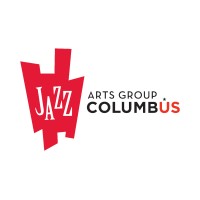Team: Rebecca Ratzkin, Alan Brown
With funding support from the Doris Duke Charitable Foundation, WolfBrown completed a large-scale study of jazz audiences in 2011, commissioned by Jazz Arts Group of Columbus, Ohio. Other participants in the research included SFJAZZ, Jazz at Lincoln Center, St. Louis Jazz, Monterey Jazz Festival, Sculler’s and the Major University Presenters consortium. Over 4,000 jazz lovers completed the ticket buyer survey, and over 1,000 jazz prospects completed another survey.

Three research reports are available for free download:
- A multi-site analysis of jazz ticket buyers: this report compares the ticket buyers from the seven survey sites on a wide ranges of attitudinal and behavioral characteristics.
- A segmentation model for jazz ticket buyers: this report offers a new customer segmentation model for jazz ticket buyers, based on a cluster analysis.
- A segmentation model for jazz prospects (i.e., music lovers who do not attend jazz concerts with any frequency); this report offers a new prospect model for likely jazz attenders, based on research conducted in Central Ohio.
Shortly after these studies were released, a group of leaders from the jazz field gathered in Columbus to consider the implications of the research and generate ideas for “new or evolved practices that will regenerate the audience for jazz.” Instead of dwelling on all that ails the jazz field, the group focused instead on identifying a small number of practices with the potential to move the field forward, such as:
- Conceiving the next generation of jazz venues, including temporary uses of “found” spaces.
- Testing new business models for presenting jazz in intimate settings.
- New models for artist self-presentation.
- Developing programs that combine observational and participatory components.
- Programming and educational efforts that accelerate the social transmission of musical tastes.
- Linking the live audience experience with acquisition of recordings.
- Creating a marketplace for collaborative jazz programming, where artists, presenters and funders can coalesce around new projects.
- Developing new vocabulary and images that speak to different segments of the jazz audience.

